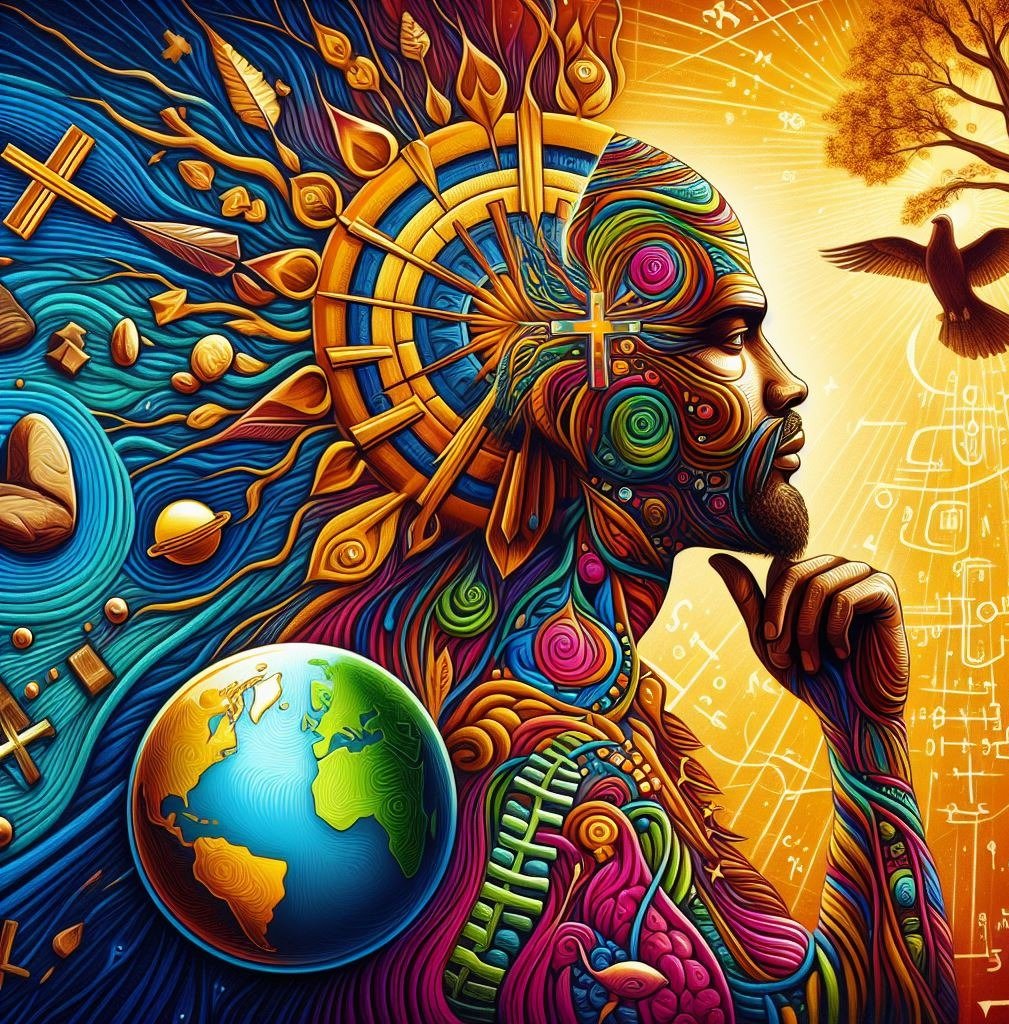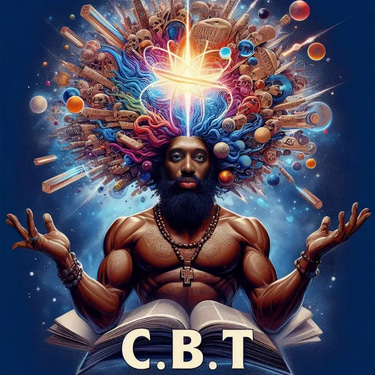The Resurgence of Belief: Why Atheism is Fading and Theism is Taking Center Stage
Explore the evolving landscape of belief systems. Witness a resurgence of theism amidst historical shifts and new atheism. Distinguish nuances between atheism and theism, fostering respectful dialogue. Navigate belief complexities with open minds, empathy, and a desire for mutual understanding.
NATURAL T
James Cassel
1/16/20246 min read


INTRO: TO THE CHANGING LANDSCAPE OF BELIEF SYSTEMS
In today's ever-evolving world, belief systems have always played a significant role in shaping societies and individuals. Over the centuries, different ideologies and philosophies have risen and fallen, each leaving its mark on the collective consciousness of humanity. One such belief system that has experienced a resurgence in recent years is theism, while atheism, once on the rise, seems to be fading into the background. In this article, we will explore the reasons behind this shift, examine the various forms of atheism and theism, and delve into the implications of this changing landscape.
Defining Atheism and Theism
To begin our exploration, let us first define the concepts of atheism and theism. Atheism, in its simplest form, is the lack of belief in any deities or higher powers. Atheists view the world through a lens of skepticism and rationality, relying on scientific evidence and logical reasoning to understand the world around them. On the other hand, theism encompasses the belief in the existence of one or more deities or a higher power. Theists find solace and meaning in their faith, often seeking guidance and purpose through their religious practices.
The Rise of Atheism: Historical and Cultural Contexts
Throughout history, periods of societal and cultural change have often led to shifts in belief systems. The rise of atheism can be traced back to the Enlightenment era, where the pursuit of reason and the questioning of traditional institutions led to a decline in religious authority. This period saw the emergence of prominent thinkers such as Voltaire and David Hume, who challenged the prevailing religious dogmas of their time. Additionally, the advancements in science and technology during the Industrial Revolution further fueled skepticism towards religious narratives, giving rise to atheistic ideologies.
Is Atheism a Religion? Exploring the Different Perspectives
One question that often arises when discussing atheism is whether it can be considered a religion. Some argue that atheism, by definition, lacks the characteristics typically associated with religious belief, such as rituals, organized institutions, and a set of doctrines. From this perspective, atheism can be seen as a rejection of religious claims rather than a belief system in itself. However, others contend that atheism, particularly in its organized forms, exhibits many traits similar to religious practices. These organized atheistic movements often have their own rituals, community gatherings, and even charismatic leaders, blurring the lines between atheism and religion.
Understanding the Different Types of Atheism
Atheism, like any other belief system, is not a monolithic entity. There are various forms of atheism, each with its own nuances and perspectives. Some atheists may simply lack a belief in deities without actively denying their existence, while others may hold a strong conviction that gods do not exist. Additionally, there are atheistic philosophies such as existentialism and secular humanism that provide alternative frameworks for understanding the world without relying on religious dogmas. Understanding these different types of atheism is crucial in comprehending the diversity within the atheist community.
The Emergence of New Atheism and Its Impact
In recent decades, a new wave of atheism known as "new atheism" has gained prominence. Spearheaded by influential figures like Richard Dawkins, Sam Harris, and Christopher Hitchens, new atheism seeks to challenge religious beliefs on a global scale. This movement emphasizes the importance of scientific skepticism, rationality, and the separation of church and state. With their best-selling books, public debates, and online presence, new atheists have garnered significant attention and sparked widespread discussions about the role of religion in society. The impact of new atheism cannot be understated, as it has undoubtedly contributed to the fading of traditional religious beliefs.
What Does Atheism Believe? Common Misconceptions Debunked
Atheism, often misunderstood and misrepresented, is subject to numerous misconceptions. One common misconception is that atheists are inherently immoral or lack a moral compass. However, atheism does not dictate one's moral values or lack thereof. Morality can be derived from various sources, such as empathy, reason, or cultural norms, and atheists can have a strong moral framework without relying on a divine authority. Another misconception is that atheists are inherently unhappy or lack a sense of purpose. On the contrary, atheists find meaning in different aspects of life, such as relationships, personal achievements, and contributing to the well-being of society.
Atheism vs. Agnosticism: Clarifying the Distinctions
In conversations about belief systems, the terms atheism and agnosticism are often used interchangeably, but they represent distinct positions. Atheism deals with the belief or lack thereof in deities, while agnosticism addresses knowledge and the limitations of human understanding. An atheist asserts that there are no deities, while an agnostic acknowledges the uncertainty surrounding the existence of deities. It is possible to be both an atheist and an agnostic, as they address different aspects of belief and knowledge. Understanding these distinctions is essential for productive discussions and avoiding misunderstandings.
The Resurgence of Theism: Reasons and Implications
While atheism has seen a rise in popularity in recent history, theism has not lost its appeal. There are various reasons behind the resurgence of theism. Firstly, religion often provides a sense of community and belonging, offering individuals a support system and a shared set of values. Moreover, the existential questions that atheism leaves unanswered, such as the purpose of life or the existence of a higher power, continue to drive people towards religious beliefs. Additionally, the rise of globalization and the interconnectedness of societies have allowed religious ideas and practices to spread and flourish, leading to a renewed interest in theism.
Exploring Classical Theism and Its Relevance Today
Classical theism, rooted in ancient philosophical and theological traditions, posits the existence of an all-powerful, all-knowing, and benevolent deity. While classical theism may seem outdated to some, its relevance persists in contemporary discussions about the nature of God. Philosophical arguments, such as the cosmological, teleological, and moral arguments, continue to be debated by theologians and philosophers alike. Classical theism provides a framework for understanding the divine and exploring the mysteries of existence.
Theism vs. Deism: A Closer Look at the Differences
Deism, often contrasted with theism, is the belief in a higher power or creator but rejects the notion of divine intervention in the world. Deists see the universe as a well-designed clockwork set in motion by a divine being, who does not intervene in human affairs. In contrast, theism posits an involved and personal deity who actively interacts with the world and its inhabitants. The distinction between theism and deism is crucial in understanding the range of beliefs about the nature of the divine and the relationship between the divine and the world.
Anti-Theism: An Extreme Response to Atheism
While the resurgence of theism may be seen as a natural reaction to the rise of atheism, it has also given rise to a more extreme ideology known as anti-theism. Anti-theism goes beyond mere disbelief in deities and actively opposes the influence of religion in society. Anti-theists argue that religion is harmful, perpetuates ignorance, and fosters intolerance. While anti-theism has gained traction among some atheists, it is important to note that it does not represent the views of all atheists. Anti-theism is a more radical perspective that seeks to challenge and dismantle religious institutions and beliefs.
The Future of Belief: Trends and Predictions
As we look towards the future, it is difficult to predict the exact trajectory of belief systems. However, certain trends can be observed. With the advancement of science and the increasing secularization of societies, atheism may continue to gain momentum in some parts of the world. However, the inherent human inclination towards spirituality and the persistent questions that religion addresses suggest that theism will endure. It is also likely that new forms of belief and spirituality will emerge, as individuals seek alternative ways to find meaning and purpose in their lives.
Conclusion: The Evolving Dynamics of Atheism and Theism
In conclusion, the landscape of belief systems is constantly evolving. While atheism experienced a rise in popularity in recent history, theism is now making a resurgence. The historical and cultural contexts, the emergence of new atheism, and the various forms of atheism and theism all contribute to this shifting dynamic. Understanding the distinctions between atheism and theism, as well as the nuances within each, is crucial for fostering respectful dialogue and promoting a better understanding of our diverse world. As we navigate the complexities of belief, it is essential to approach these discussions with open minds, empathy, and a genuine desire for mutual understanding.
CTA: Unlock the secrets of our shared genetic heritage and journey through the fascinating world of Faith and Science. Sign up now to delve into thought-provoking articles, exclusive insights, and stay connected with the latest discoveries. Begin your exploration and discovery – subscribe today!
